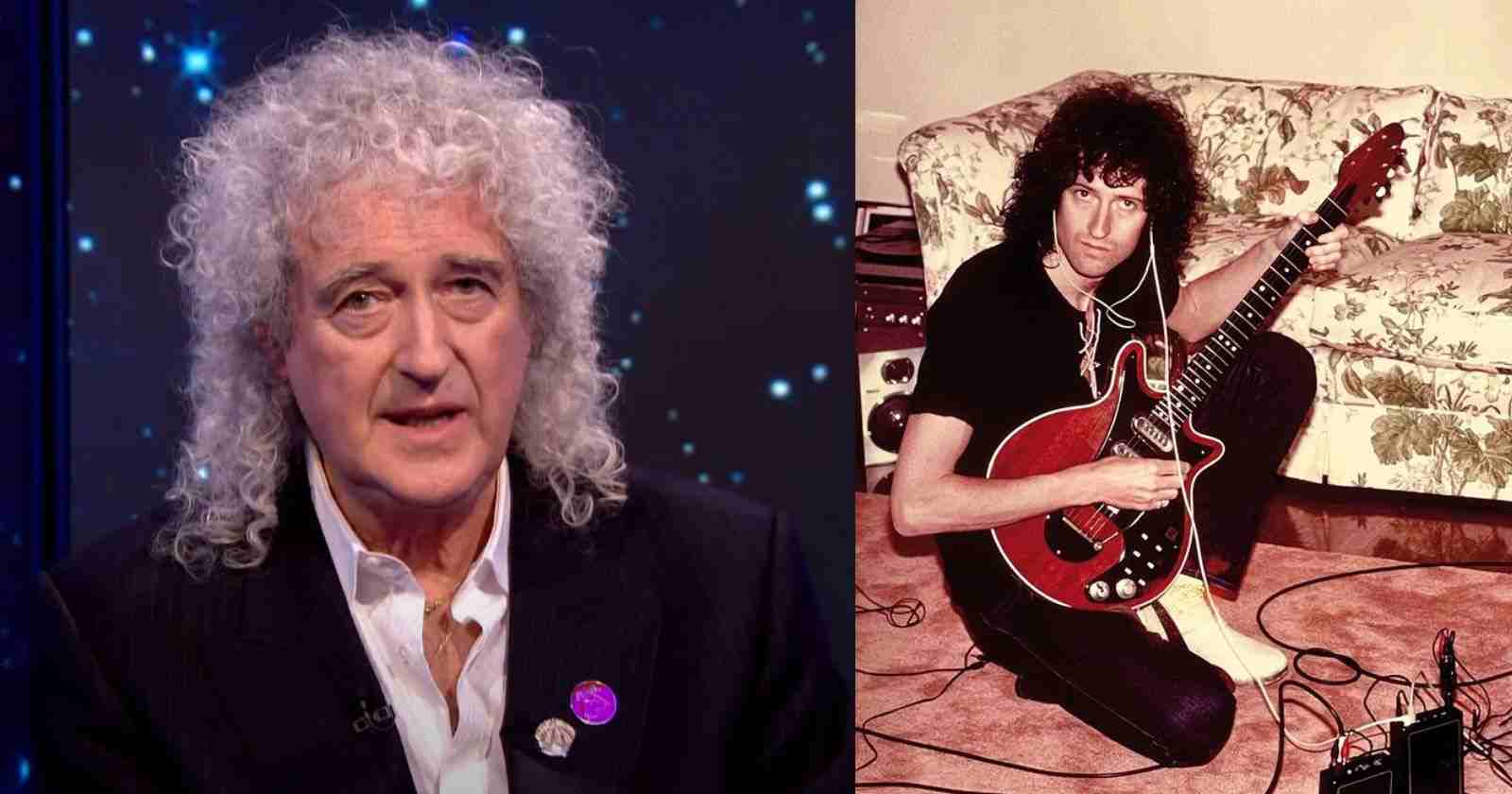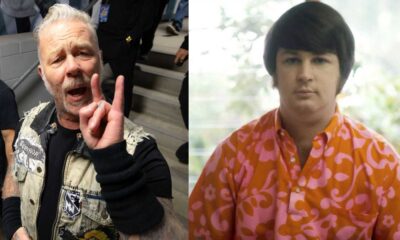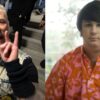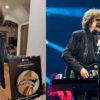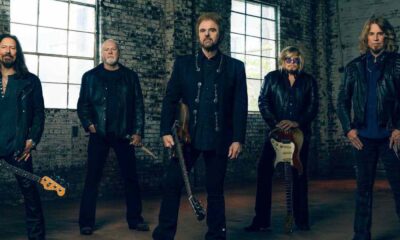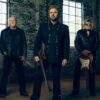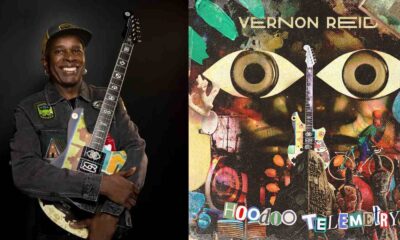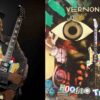ARTICLES
The musician that Brian May called the original Hard Rock icon
The guitarist, songwriter and astrophysicist Brian May was born in Hampton Hill, Middlesex, England in 1947, starting his musical career in 1963 when he was still a teenager. After a few years being part of a few groups, he helped to form Queen alongside his old friend, the drummer Roger Taylor and the vocalist Freddie Mercury. One year later they were joined by the bassist John Deacon and their classic line-up was complete.
Five decades ago, back in 1973, their self-titled debut album was released and showed that they could certainly have become a Hard Rock band but during their career the group showed that they wanted much more than just that and mixed that kind of music with many other influences.
May himself has a very broad musical taste and loves many heavier groups. He even once said who was in his opinion the original Hard Rock icon.
The musician that Brian May called the original Hard Rock icon
Although Queen is more remembered for the famous ballads which were marked especially for Freddie’s powerful voice and May’s unique guitar sound, they also had many heavy tracks. The guitarist had the chance to share the stage with many Hard Rock and Heavy Metal artists during his career and one of them was the Motörhead founder, bassist and vocalist Lemmy Kilmister.
He performed the classic track “Overkill” with the band back in 2000 at their 25th anniversary concert at the Brixton Academy in London. Right after Lemmy’s passing in 2015 at the age of 70, May posted a tribute to the artist in his official website. He praised Kilmister and called him the original Hard Rock icon.
“Words don’t come easy. Especially when you know Lemmy would have laughed at us all trying to say dignified things about him being a hero. Any time I attempted to say anything complimentary to Lemmy to his face, he would fix me with a kind of amused, contemptuous stare.”
He continued:
“But a kind of hero he certainly was. Unique in just about every way imaginable. He was a living mismatch of personality types. His music was roaring, abrasive, uncompromising. His lyrics mostly deliberately gave no hint of sensitivity. Yet as a person he was a pacifist, a deep thinker. A man who cared profoundly about his friends. I was never in his closest circle of pals. But we bumped into each other often. He always managed to say something shockingly respectful to me, leaving me disarmed. Because he hated being praised himself. Or so it seemed.”
“One of my dearest friends lived with Lemmy for 10 years. She always spoke of him as a tender man. Very different from his public face, which never deviated from his tough gaze on the world. Lemmy was a highly cultured and well-read man. Yet to see him glued to a fruit machine most of a night in the Rainbow Bar and Grill on Sunset Strip you would never have guessed it. In fact, that hallowed place, steeped in Rock and Roll history. Will always bear his spiritual mark.”
He continued:

“We all come into this world as babies, and mould ourselves into what we want to be. Lemmy – as a product of his own will, has to be the original mould of a Hard Rock Icon which defines the term. Lemmy lived his music and his persona within his music 100 per cent to the full. Motörhead has been for most of its history a three-piece outfit. Again leaving no room for frills. And the three pieces (or sometimes four) were always frenetically at max. I remember guesting with them at the Brixton Academy. It was possibly the most ear-splitting experience of my life.”
“Most bands – while the back line is arranged to look mean and powerful. Actually keep the on-stage volume to a controlled maximum, the real volume for the audience being supplied by miking everything into a large PA system. Not so Motörhead (with the umlaut on the ‘o’ of course). The giant piles of speaker cabinets behind them were all live and all turned up to 10. ( OK – 11 ! ) The sound of Lemmy’s bass was like being inside a giant pulverising machine. A whole frequency spectrum thing.”
He continued:
“It wasn’t a conventional bass sound at all. Even if no other instrument was playing for a moment, Lemmy’s bass was deafening you from 50 cycles to 10K. And he was hammering (and I choose my words carefully) round about 200 notes a minute for a lot of the time. (So) it was, and is, unique. And on top of this monumental noise sat his highly distinctive throaty tobacco-soaked growl of a vocal,” Brian May said.
In the same statement, Brian May praised the former Motörhead members: Eddie “Fast” Clarke, Phil “Animal” Taylor, Phil Campbell and Wurzel.
May played on Motörhead’s final album “Bad Magic”
The Queen guitarist Brian May was invited by the Motörhead guitarist Phil Campbell to play a guitar solo on the band’s final album “Bad Magic” released in 2015. Until then nobody knew about Lemmy’s health, so it wasn’t considered a final album yet. May accepted the invitation and made a solo for the track “The Devil”.
During their career, Motörhead made a lot of covers and since they were a unique band, those versions would always seem like new songs, even when it was only Lemmy playing. He was part of the 1997 tribute album “Dragon Attack: A Tribute To Queen”. The track also had Ted Nugent, Tommy Aldridge, Rudy Sarzo and Bob Kulick.
In 40 years of existence, Motörhead released 22 studio albums and sold an estimated amount of more than 15 million records worldwide. Although it is not a big number compared to many other famous bands, it shows how the group led by Lemmy became a cult-following band.
I'm a Brazilian journalist who always loved Classic Rock and Heavy Metal music. That passion inspired me to create Rock and Roll Garage over 6 years ago. Music has always been a part of my life, helping me through tough times and being a support to celebrate the good ones. When I became a journalist, I knew I wanted to write about my passions. After graduating in journalism from the Pontifical Catholic University of Minas Gerais, I pursued a postgraduate degree in digital communication at the same institution. The studies and experience in the field helped me improve the website and always bring the best of classic rock to the world! MTB: 0021377/MG


